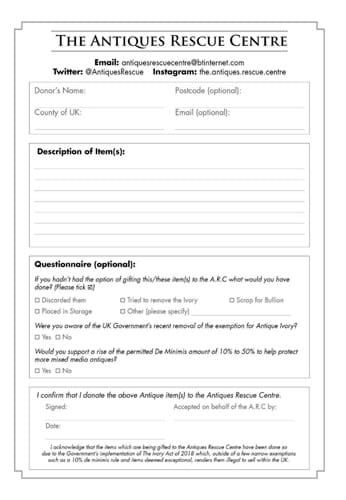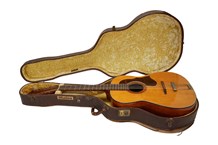Baggott has created the ARC (see ATG 2530) for objects that are at risk of being destroyed when the Ivory Act comes into force later this year.
He said: “Ideally we will receive nothing as everyone will want to treasure that item and keep it: that’s the best outcome.
“But the reality is lots of people want to clear out items that they may inherit. The ARC is the last resort: an alternative to the bin, the shredder or the scrap man’s hammer.”
Among the auction houses that have volunteered to accept items from the public who would instead throw them away, are Ryedale, Trevanion, Cooper and Tanner and Golding Young & Mawer’s Bourne saleroom. These auction houses will accept items on behalf of the ARC.
A number of volunteers within the trade have also offered to collect items.
Baggott plans to create a register of the items donated and, if a location to store the items as part of a public display is not found, the ARC will publish the images of the collection online and create a catalogue.
He added: “The more specialists that volunteer within the trade the better but this is a slow process and ARC will develop over time.
“No one person will own the items – they will form a small national collection of things saved from destruction.
“The plan is for the items to be shared, not stored away without access. If the collection builds, ARC will eventually become a charity or trust.”
Baggott is also asking for photos of items that are being modified for sale with ivory elements (finials, escutcheons, handles etc) removed and replaced. He said these images can be sent anonymously.
ARC has created a donation form that can be downloaded from ATG’s website.
Contact the ARC via email or on social media at:► antiquesrescuecentre@btinternet.com
• The Department for Environment, Food and Rural Affairs (Defra) launched its digital registration service for exempted items with accompanying guidance on February 24 and said there will be an approximate four-month period for businesses to register exempt items before the ban is enforced. Read more about the guidance and service from Defra.
















